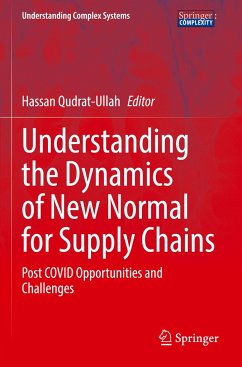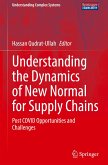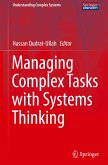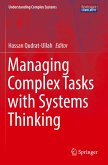This book provides research results and shares experiences in the area of supply chain management. It addresses topics such as risk reduction of lesser marginal profits, disrupted supply chain management, and potential points of business failure. This book explores the "new normal" of the business supply chain. The didactic approach informs global enterprises on how to deal with the most significant issues in the current supply chain management. The book shows an in-depth analysis of post-COVID opportunities and challenges and acts as an initiative for readers to understand the risks, opportunities, and concerns resulting from the pandemic situation and is a key driver for business management among industry professionals and enterprises.
Readers will learn new insights and procedures to better manage multitier supply chains, predictability, and estimation of binding capacity. The book details modeling and technology-based customer demand and response management solutions. New techniques, methods, and perspectives dealing with the estimation, acceleration or deceleration, and flexibility of logistics capacity are particularly emphasized throughout the manuscript. Real-world cases dealing with various aspects of the new normal for supply chains are analyzed.
The book is useful for industry professionals and enterprise firms in business management to effectively understand risks, opportunities, and concerning the pandemic situation.
Readers will learn new insights and procedures to better manage multitier supply chains, predictability, and estimation of binding capacity. The book details modeling and technology-based customer demand and response management solutions. New techniques, methods, and perspectives dealing with the estimation, acceleration or deceleration, and flexibility of logistics capacity are particularly emphasized throughout the manuscript. Real-world cases dealing with various aspects of the new normal for supply chains are analyzed.
The book is useful for industry professionals and enterprise firms in business management to effectively understand risks, opportunities, and concerning the pandemic situation.








